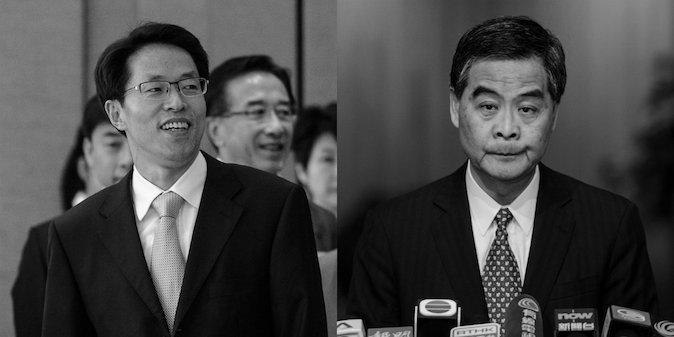HONG KONG—Hong Kong’s stock market suddenly became much more active following the Easter holiday. Hong Kong Financial Secretary John Tsang said in a conference on May 18 that the increase in stock market activity since the second quarter has resulted in a record market daily turnover.
However, given the continual uncertainties in the global economy and asset price fluctuations, Tsang predicted that the stock market will be due for corrections in the foreseeable future. He reminded investors to watch the market closely and avoid taking excessive risks.
In April alone, the Hang Seng Index (HSI) rose 14 percent totaling 3,200 points, a monthly increase record since May 2009. However, the market entered the consolidation phase in May with the HSI falling continuously for days.
On May 15, the HSI gained more than 500 points as it was stimulated by reports in the local media of the launch of the Hong Kong Shenzhen Stock Connect over the weekend.
Though the reports were refuted on the social media platform of the Hong Kong Stock Exchange, the Securities and Futures Commission shied away from making any comments. Speculations were therefore rife that the reports could be accurate.
However, to the market’s disappointment, the reports failed to materialize. Coupled with the fluctuations in the mainland Chinese markets, the local market fell on May 18 with the HSI down 231 points on a market turnover of US$15.86 billion (HKD $122.99 billion.) The H-shares Index fell 83 points or 0.6 percent to close at 13,926.
Following Premier Li Keqiang’s request for telecom companies to lower their fees at an earlier date, all the major telecom companies were met with a sell-off. China Mobile (00941), the most heavily traded stock on a turnover of US$290 million ($2.266 billion,) fell 2.8 percent to become the worst-performing blue chip.
China Telecom (00728) and China Unicom (00762) were both down 2.3 percent. The blue chips generally fell, with the Hong Kong Stock Exchange (00338) losing 1.1 percent while Tencent (00700) lost 0.7 percent.
Both A-share markets were down. The Shanghai market fell 0.58 percent to 4,283, and the Shenzhen market fell 0.15 percent to 14,672.
Capital Inflow




